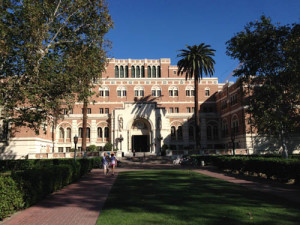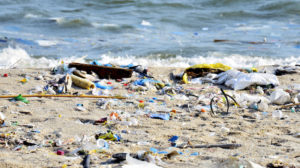
States file a lawsuit challenging the T-Mobile-Sprint merger, the Treasury Department closes a loophole in the Tax Cuts and Jobs Act, and more…
IN THE NEWS
- A coalition of states filed a lawsuit challenging the proposed multi-billion dollar merger between T-Mobile and Sprint. Attorney General of Virginia Mark Herring stated that “this proposed merger would likely lead to increased costs, fewer choices, and less innovation in the market.” Federal Communications Commission Chair Ajit Pai, however, previously expressed his support when he stated that “this transaction is in the public interest,” adding that the merger of the two telecommunication giants will “bring much faster mobile broadband to rural Americans.”
- The U.S. Department of the Treasury issued a final rule eliminating a loophole in the Tax Cuts and Jobs Act (TCJA) of 2017 that would have allowed taxpayers to circumvent the Act’s $10,000 cap on state and local tax deductions by claiming the taxes as charitable contributions. After the TCJA passed, some higher-tax rate, Democratic-leaning states reportedly took steps to allow taxpayers to donate their state and local taxes to government funds in return for tax credits, which could be classified as charitable contributions under the TCJA and thus would not be subject to the cap. The new rule closes the loophole by counting any tax credits received under such arrangements against the taxpayer’s total charitable contributions.
- The California Conference Committee on the Budget agreed to a budget proposal that will make California the first state to extend its Medicaid program to undocumented immigrant adults. The budget agreement allows undocumented adults under the age of 26 to enroll in Medi-Cal, the state’s health insurance program for low-income residents. Democratic members supported an expansion of Medi-Cal to all undocumented adults, but Governor Gavin Newsom reportedly opposed a wholesale expansion due to cost.
- Representatives from the news publishing and tech industries testified before the House Judiciary Committee about the Journalism Competition and Preservation Act proposed by Representative David Cicilline (D-R.I.). The Act would provide antitrust waivers to news publishers. Industry representatives noted that antitrust law prevents publishers from acting collectively to resist any terms and restrictions that may be imposed on publishers by tech powerhouses like Google and Facebook. But in written testimony, Matt Schruers of the Computer & Communications Industry Association criticized the publishers’ argument, saying that antitrust law serves to protect “consumer welfare through lower prices, higher quality, and greater innovation” and that an exemption for news publishers is “not advisable.”
- The U.S. Department of Education proposed to streamline regulatory barriers related to the accreditation of higher education institutions. The proposed amendments, according to Secretary of Education Betsy DeVos, would provide greater flexibility to allow institutions to “spend more time and effort on serving students and less time, energy, and money focused on bureaucratic compliance.” But the proposal has been criticized for weakening quality assurances for students. For example, Antoinette Flores, an associate director at the Center for American Progress, reportedly stated that the proposal will increase the risk that students “will end up in low quality programs that don’t meet standards and will not serve them well.” The comment period on the proposal closes July 12.
- New York state legislators agreed to major changes to the state’s rent protection laws that will roll back exceptions to New York City’s rent regulations and allow local governments with a vacancy rate under five percent to establish their own rent stabilization programs. “For too long, power has been tilted in favor of landlords and these measures finally restore equity and extends protections to tenants across the state,” said Senate Majority Leader Andrea Stewart-Cousins (D) and Speaker of the Assembly Carl Heastie (D) in a joint statement. Taxpayers for an Affordable New York, a coalition of real estate groups that reportedly had opposed the changes, said that the legislation “fails to address the City’s housing crisis and will lead to disinvestment in the City’s private sector rental stock.”
- President Donald J. Trump signed an executive order intended to simplify regulation of genetically engineered agricultural products. The order instructs administrative agencies to identify and streamline any rules that may impose an undue burden on U.S. biotechnology developers, and to adopt science- and risk-based approaches to their regulatory decision-making. Greg Jaffe, a biotechnology director at the Center for Science in the Public Interest, reportedly responded with concern that deregulating the agricultural biotech industry could make people lose confidence in innovative methods, such as genetically engineering foods.
- The U.S. House of Representatives passed the DHS Cyber Incident Response Teams Act. The Act would create U.S. Department of Homeland Security cyber-attack response teams tasked with rapid response to data breaches or other attacks in both the public and private sectors. The bill’s sponsor, Representative Michael McCaul (R-Texas), said the legislation would “foster collaboration between the public and private sector to ensure our nation can continue to adapt to the constant changes in the cyber landscape.”
- Justin Trudeau, the Prime Minister of Canada, announced that his government will move to ban single-use plastics such as plastic bags, straws, cutlery, plates, and stir sticks as early as 2021. “Canadians know first-hand the impacts of plastic pollution, and are tired of seeing their beaches, parks, streets, and shorelines littered with plastic waste,” Trudeau said. Conservative Party leader Andrew Scheer reportedly criticized the proposal as lacking “specifics about how this would be implemented or any kind of study on the impact on prices for consumers, on jobs, on how this would affect small businesses.”
WHAT WE’RE READING THIS WEEK
- The two “Take Care” clauses in Article II of the U.S. Constitution may impose limits on the power of the President to act out of private self-interest or against the direction of Congress, according to a Harvard Law Review article by professors Andrew Kent, Ethan Leib, and Jed Shugerman of Fordham University School of Law. The authors argue that the original meaning of the Take Care clauses in Article II—which require the President to “faithfully” execute the duties of office—closely resembles the corporate law fiduciary duties imposed on corporate officers to avoid self-dealing financial transactions and to act within the limits of their authority. This “fiduciary” understanding of the Take Care clauses suggests that these provisions limit rather than expand presidential power, according to the authors.
- In a policy paper published by the Cato Institute, Jeffrey Miron of Cato, Greg Sollenberger of insurance company Horace Mann, and Laura Nicolae of Harvard College suggested that the current opioid crisis has resulted from excessive—rather than inadequate—regulation of prescription opioids. The authors argued that restrictions on opioid prescribing drives users to illegal drug sources, where potency and purity of drugs cannot be easily ascertained. In arguing that restrictions on opioids should be reduced, the authors explored recent data indicating that deaths from opioid overdose have increased even as opioid prescriptions have decreased.
- Joshua Kurek of Mount Allison University, Paul W. MacKeigan of McGill University, Sarah Veinot of the Beatrice Hunter Cancer Research Institute, Angella Mercer of Dalhousie University, and Karen A. Kidd of McMaster University released a study that highlights the ecological legacy of dichlorodiphenyltrichloroethane (DDT), a common pesticide. DDT was banned in North America decades ago, but the new study found that high levels of DDT still persist in lake ecosystems. The study also found that the lingering presence of DDT continues to harm invertebrate populations in these ecosystems.



